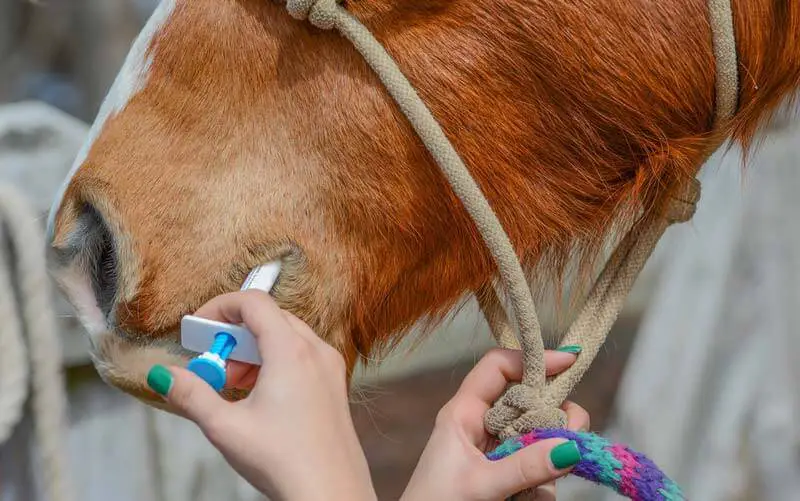
Colic can range from mild to severe, with horses showing a multitude of signs when afflicted with gastrointestinal pain. Horse owners should be familiar with their horse’s normal vital signs and behaviour, so they are quickly alerted if a colic episode arises.
Horses are incredibly stoic animals. In nature, as a prey species, any vulnerable horse affected by illness or injury may mask outward signs and this can occur when mild abdominal pain – the first level of colic – develops.
In its earliest stages, mild abdominal pain may only be noticed by a slight change in behaviour, such as increased time spent lying down, failure to finish a meal or a variation in manure output. If you suspect colic early, it’s best to check your horse’s vital signs for any changes.
Listed below are the normal vital signs for horses:
- Pulse: the normal resting pulse rate should be between 32-40 beats per minute
- Respiration: the normal respiratory rate should be between 8-20 breaths per minute
- Temperature: a rectal temperature between 37.5-38.5 degrees celsius is considered normal
Any sudden spike in heart rate, respiratory rate or temperature may indicate a health problem, such as colic, and you should call your veterinarian immediately to discuss the situation. The absence of gut sounds is also cause for concern.
As a horse’s colic progresses from mild to severe, their behaviours may change as the pain and discomfort becomes more intense. Some of the common signs of colic include:
Mild abdominal pain
- Loss of interest in food or water
- Playing in the water trough, but not drinking
- Pawing at the ground
Moderate abdominal pain
- Frequently laying down and getting up
- Kicking at the belly
- Grunting
Severe abdominal pain
- Excessive sweating around the flanks or shoulders
- Continuous rolling
- Getting up and down violently
While this list of clinical signs is by no means exhaustive, it does show the variety of behaviours commonly associated with colic. If you have any concerns about your horse and the possibility of colic, you should contact your veterinarian urgently who can assess the situation.
Your veterinarian will be able to perform a complete physical examination of your horse, along with a thorough investigation of their paddock, bedding and stall to determine if there is evidence of colic. Diagnostic testing may also be necessary to identify the type of colic present. NB: If your horse is not Hendra vaccinated your vet may be limited in diagnostic test they can perform. Depending on their clinic Hendra protocol, some vets will not perform invasive procedures on any unvaccinated horses. Check with your local vet for their protocol.



